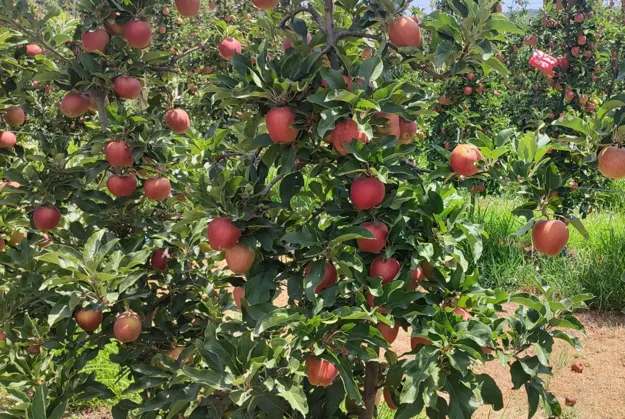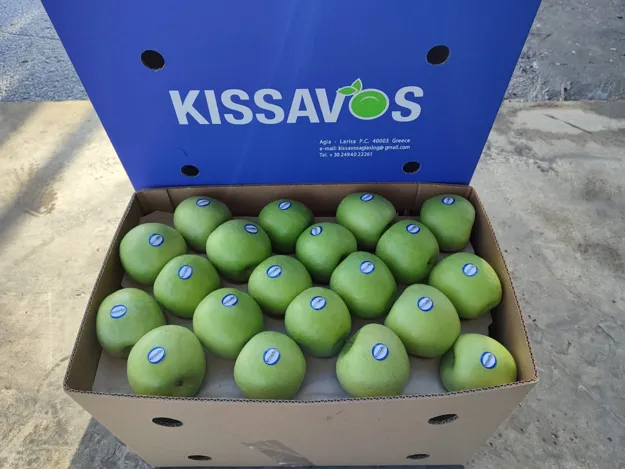The apple cultivation in Greece is expected to be lower than usual, in the area that grows quite a chunk of the Greek national production, Matoula Katsika, export and sales manager for Greek fruit exporter A.C. Kissavos, says: “The apple production in our region, and in general for the producing countries of the EU, appear to be reduced for the new season. In the area of Agia Larissa, where the Kissavos cooperative is based, around 20%-30% of apple production in Greece is cultivated, which means that it is the most dynamic throughout the country.”
Kissavos grows quite a few apple varieties in Greece, but sees a large growth in production for one specific apple, Katsika states. “In our region, about 80,000 tons of apples are produced per year, while the number of apple trees exceeds 900,000. The harvest begins with early varieties such as Gala and Ozark Gold. Then we move to the red varieties like Jeromine, Red Velox, Scarlet, Super Chief and Red Cup and finally the late varieties like Fuji and Granny Smith. I admit that Granny Smith is experiencing the greatest growth in our region and occupies about 40% of annual production.”

This year, Greek has been dealing with a large storm, but Katsika emphasizes that the weather has negatively impacted the Greek apple cultivation for multiple years now: “The weather conditions of recent years have made apple cultivation difficult in Greece. Fortunately, in the area of Agia the damage was limited, although we were very close to the epicentre of storm Daniel. In other areas, after the passage, it left losses; first in human lives and then in property losses, such as buildings, equipment, machinery, flocks, roads and fields.”
As supply will be lower this year, demand is already shooting up, Katsika explains. “This year, due to the violent change in weather conditions, we have losses of about 60%. It will take a lot of effort to meet our customers’ orders and the increased demand. The demand is already at a high level and I believe it will continue to be to this extent throughout the season. The problem, however, is that the quantities available in Greece and Europe are reduced by 30-40%. A natural consequence will be the reduced revenues of our cooperative and we are thus called upon to balance the increased operating costs, such as energy and the operating costs that the business has.”

“Our main concern is to ensure the high quality of the products we send to our customers, and to be able to inspire security and certainty to our clients. They must be confident that they will receive the products they have originally requested,” Katsika concludes
For more information:
Matoula Katsika
A.C Kissavos
Tel: (+30) 24940 22261
Email: [email protected]
https://kissavosgroup.gr
